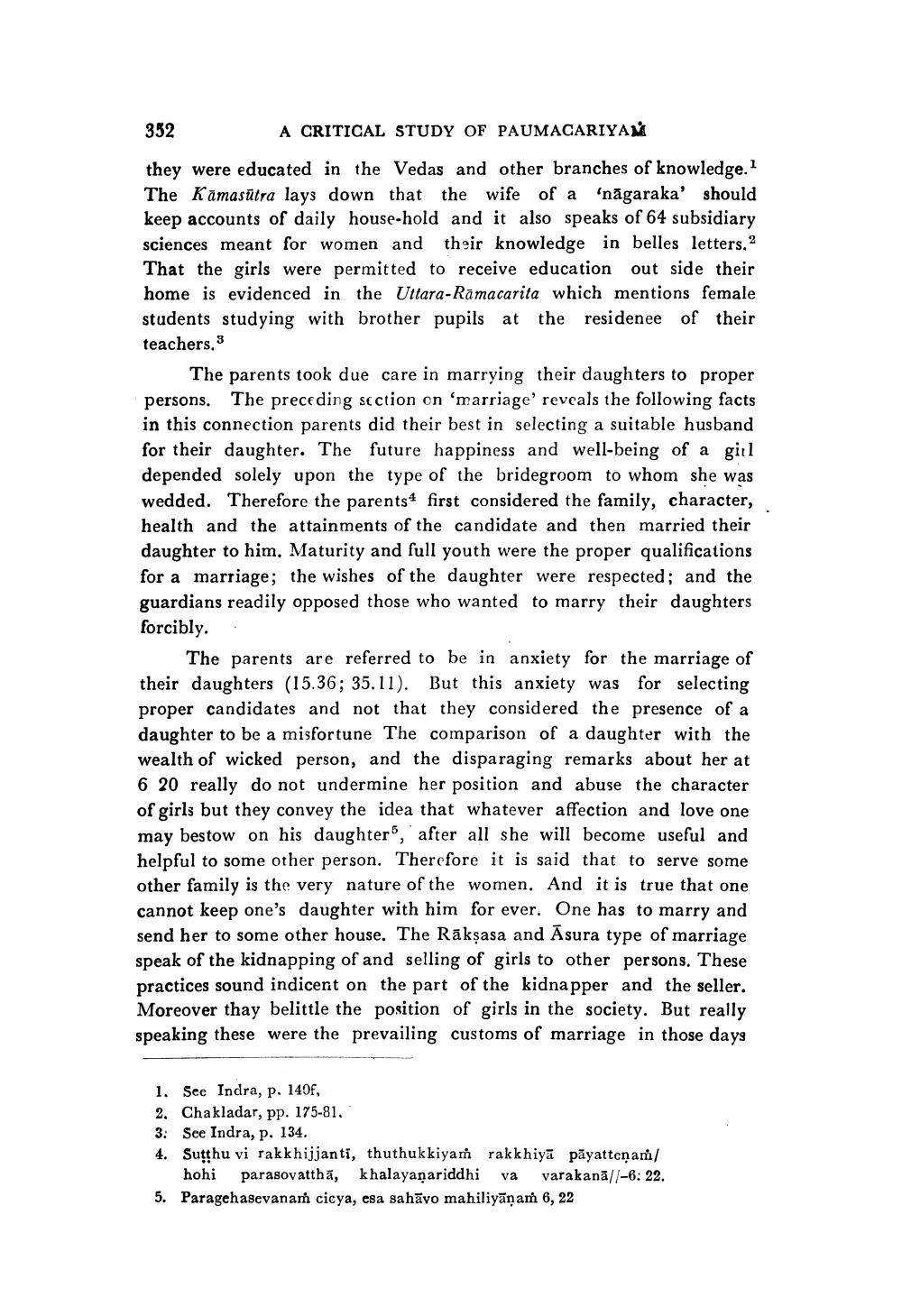________________
352
A CRITICAL STUDY OF PAUMACARIYAM
they were educated in the Vedas and other branches of knowledge.? The Kāmasūtra lays down that the wife of a 'nāgaraka' should keep accounts of daily house-hold and it also speaks of 64 subsidiary sciences meant for women and their knowledge in belles letters, 2 That the girls were permitted to receive education out side their home is evidenced in the Uttara-Rāmacarita which mentions female students studying with brother pupils at the residenee of their teachers, 3
The parents took due care in marrying their daughters to proper persons. The preceding section cn 'marriage' reveals the following facts in this connection parents did their best in selecting a suitable husband for their daughter. The future happiness and well-being of a girl depended solely upon the type of the bridegroom to whom she was wedded. Therefore the parents first considered the family, character, health and the attainments of the candidate and then married their daughter to him. Maturity and full youth were the proper qualifications for a marriage; the wishes of the daughter were respected; and the guardians readily opposed those who wanted to marry their daughters forcibly. .
The parents are referred to be in anxiety for the marriage of their daughters (15.36; 35.11). But this anxiety was for selecting proper candidates and not that they considered the presence of a daughter to be a misfortune The comparison of a daughter with the wealth of wicked person, and the disparaging remarks about her at 6 20 really do not undermine her position and abuse the character of girls but they convey the idea that whatever affection and love one may bestow on his daughter, after all she will become useful and helpful to some other person. Therefore it is said that to serve some other family is the very nature of the women. And it is true that one cannot keep one's daughter with him for ever. One has to marry and send her to some other house. The Raksasa and Asura type of marriage speak of the kidnapping of and selling of girls to other persons. These practices sound indicent on the part of the kidnapper and the seller. Moreover thay belittle the position of girls in the society. But really speaking these were the prevailing customs of marriage in those days
1. See Indra, p. 140F, 2. Chakladar, pp. 175-81, 3. See Indra, p. 134. 4. Sutthu vi rakkhijjanti, thuthukkiyam rakkhiyā pāyattenan/
hohi parasov atthā, khalayanariddhi va varakanā//-6: 22. 5. Paragehasevanaṁ cicya, esa sahāyo mahiliyānam 6, 22




